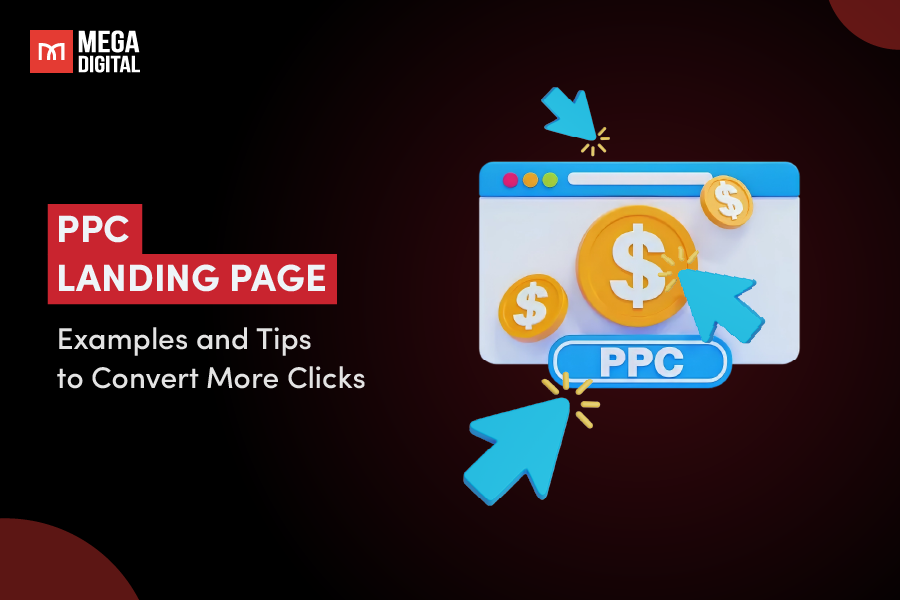Are you a dropshipper wondering how to find dropshipping suppliers that can take your business to the next level? This guide is packed with key steps to help you source the right suppliers. I will take you through the most important platforms and how to evaluate them and give you tips on negotiating with them.
Where to Look for Suppliers?
Obviously, where you source your products can make or break the success of your business. Well, it is time for you to consider the various options out there, and in a little while, you might find something that would work well for your business needs.
Online marketplaces
Online marketplaces are a top choice for dropshippers, offering a wide range of products across various categories. These platforms are popular for their large supplier pools, which makes them ideal for entrepreneurs just starting out or looking to scale quickly.
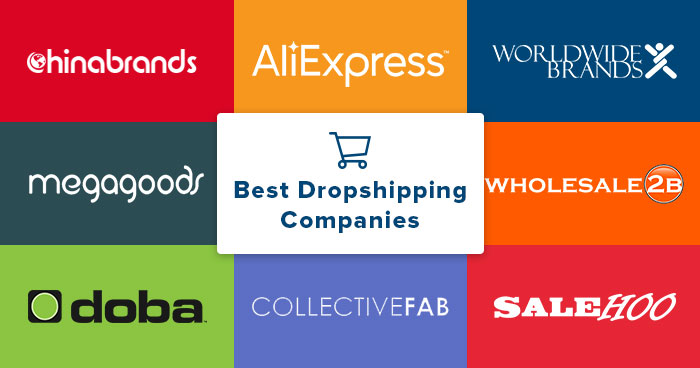
- AliExpress – A goldmine for a range of products at competitive prices
- Oberlo – Great for finding trending items that can boost your sales
- SaleHoo – Offers a curated selection of reliable suppliers
The best thing, though, is that they allow you to test different suppliers and then find the best dropshipping niches without committing to bulk orders.
Supplier directories and platforms
Want a more hands-off approach? Supplier directories and platforms offer curated, pre-vetted options that save you time and hassle.
- Worldwide Brands – Access to a huge database of certified wholesalers and dropshipping suppliers.
- Spocket – A platform known for its high-quality, US and EU-based suppliers.
These platforms may require membership, but the trade-off is access to trusted suppliers and premium service.
Manufacturer and wholesaler websites
If you’re looking for more control over your products and margins, connecting directly with drop ship manufacturers or wholesalers can be an effective strategy. While the process might require more effort in establishing relationships, you can often negotiate better pricing and enjoy a direct link to the product.
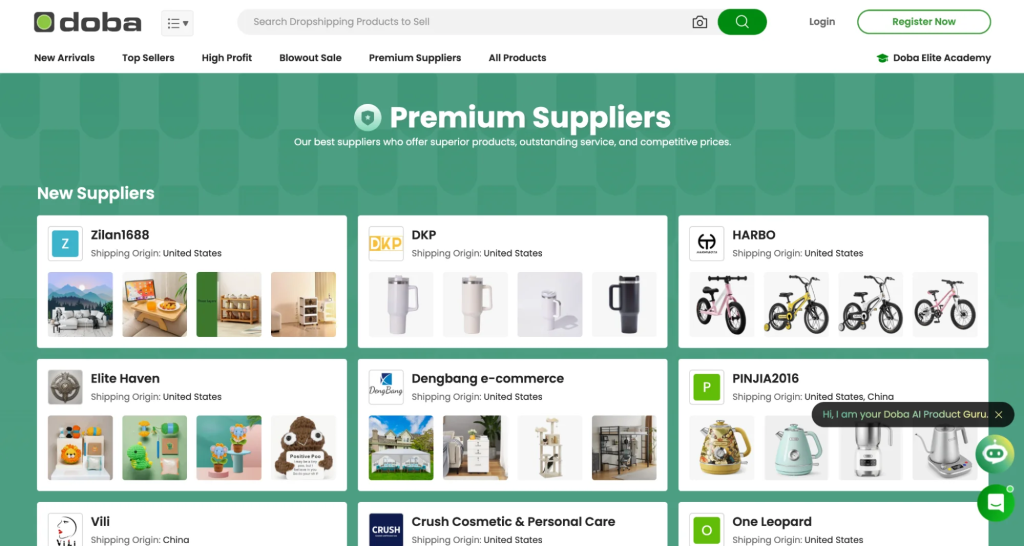
Most manufacturers nowadays are even willing to drop ship, a few of them advertising their services on their website for such options. You will see them being willing to get in touch to talk about terms, minimum order quantity, and shipping arrangements that suit one’s business better.
Industry-specific Suppliers
For dropshippers targeting niche markets, industry-specific suppliers can provide unique advantages. These suppliers specialize in specific categories or trends, such as eco-friendly products, health and wellness items, or tech gadgets.
Often, these suppliers have products that will assist in carving out a competitive niche within the market. Discovering new industry-specific suppliers might involve visiting relevant forums, joining trade shows, or subscribing to specialty directories.
How to Find Dropshipping Suppliers?
After spotting the right place, the next question to answer is how to find suppliers for your needs. Here are some essential steps to help you choose the very best dropshipping supplier for your business.
Understand the Supply Chain
The first step in identifying the best drop shipping suppliers is to understand how the supply chain works.
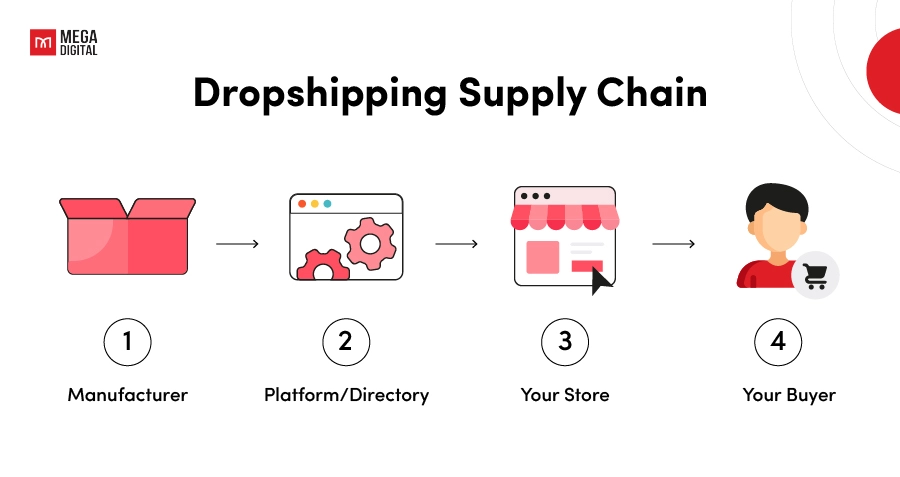
In a typical dropshipping supply chain, you send customer orders to your supplier for a particular product, and your supplier ships it directly to your customer. You do not handle the products physically, so it is essential that you know who is responsible for each step of product sourcing, packaging, and shipping. This will enable you to choose a supplier who would meet all these expectations and have such processes running smoothly.
Assess your dropshipping manufacturer’s ability to handle the entire process efficiently, from order fulfillment to tracking and delivery. The reliability of each link in the chain will directly impact your customer satisfaction and overall business performance.
Determine Your Dropship Needs
Next, you need to define your dropshipping business needs. Ask yourself questions like:
- What type of products do I want to sell?
- What is my target market?
- What are my shipping and delivery preferences?
With these questions, you will lead yourself to the right suppliers.
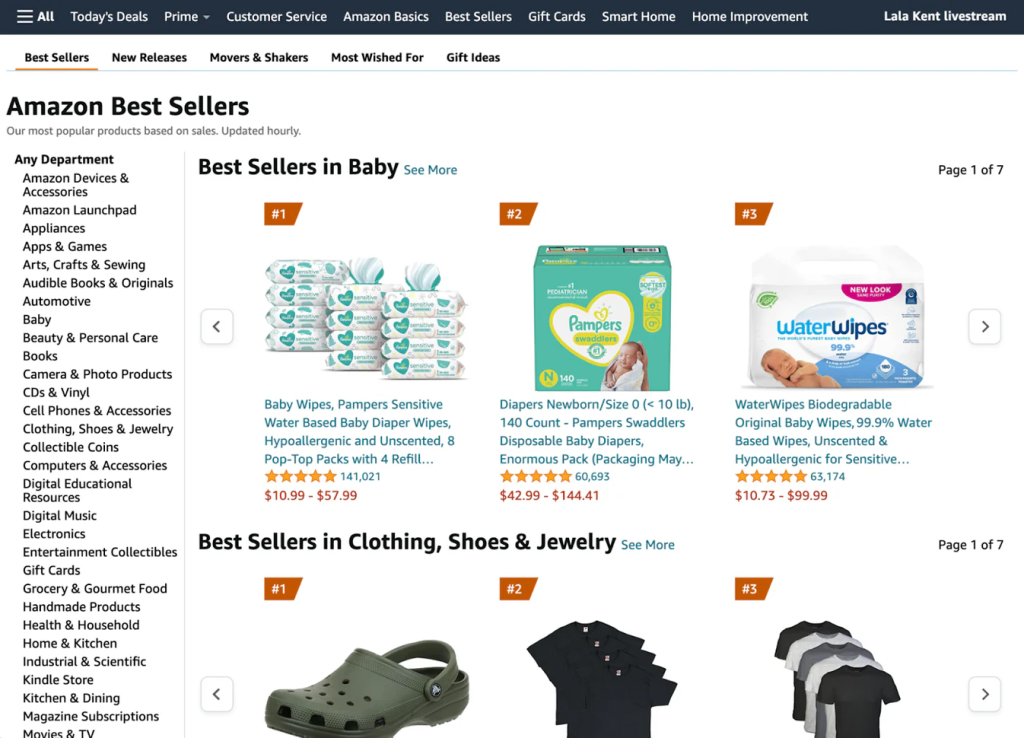
For example, if a niche market requires special products, you would need a supplier that could get you those specific products for a constant supply. Perhaps you are just interested in fast delivery, so you may need a supplier with speed when delivering the products, probably from the same country.
Consider Product Niche and Market Fit
It’s essential to ensure the supplier can provide products that fit your brand and appeal to your target audience. For example, if you are selling fitness products, your supplier would specialize in distributing high-demand fitness products, such as workout gear, supplements, or wearables.
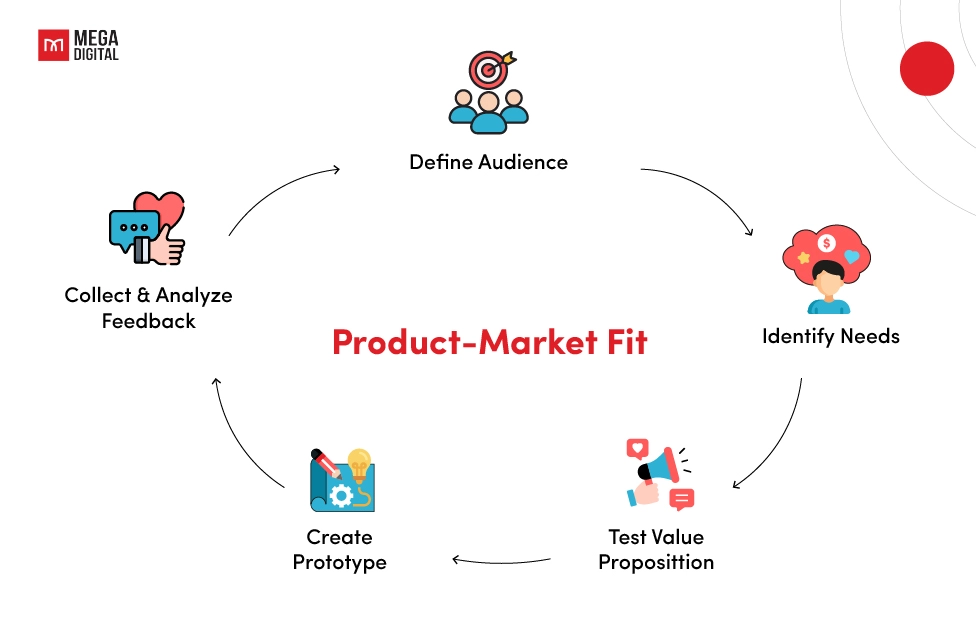
Beyond the product itself, consider the supplier’s ability to scale with your business as it grows. Continue by asking: Will they have enough inventory to meet potential surges in demand? Are they equipped to handle your specific product requirements, such as packaging or customization?
And, make sure that the outcome your audience is looking for is what the supplier is offering and that it is capable of supporting your business in the long run.
>>> Read more: Top 21+ Dropshipping Products with High-Profit Margin
Evaluate Supplier Reliability
Reliability is arguably the most important consideration when selecting a dropshipping supplier. You would want to engage partners who consistently deliver quality products on time and communicate excellently.
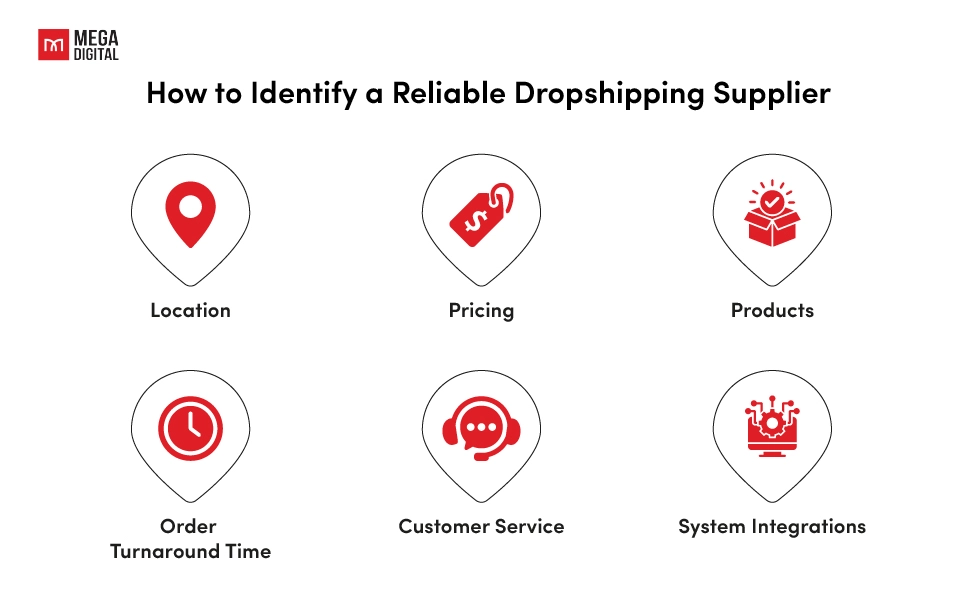
Investigate each prospective supplier thoroughly by checking customer reviews, ratings, and judgment calls. Most platforms like AliExpress, and SaleHoo have reviews built into them, where you can gauge performance by suppliers.
Furthermore, consider asking for samples from suppliers to evaluate product quality yourself. Note how fast and professional they reply to inquiries. An excellent supplier is transparent, responsive, and proactive when it comes to resolving issues.
5 Best Dropshipping Suppliers for Your Business
When you have the whole concept of how to identify a suitable supplier and know what your needs are, it is time to get into the next step – finding the top suppliers who can help in your dropshipping success.
#1 AliExpress
Key stats:
- Shipping reach: Over 200 countries worldwide
- Average product cost: 20-50% lower than retail prices in most markets
- Delivery time: 12-60 days, depending on shipping method
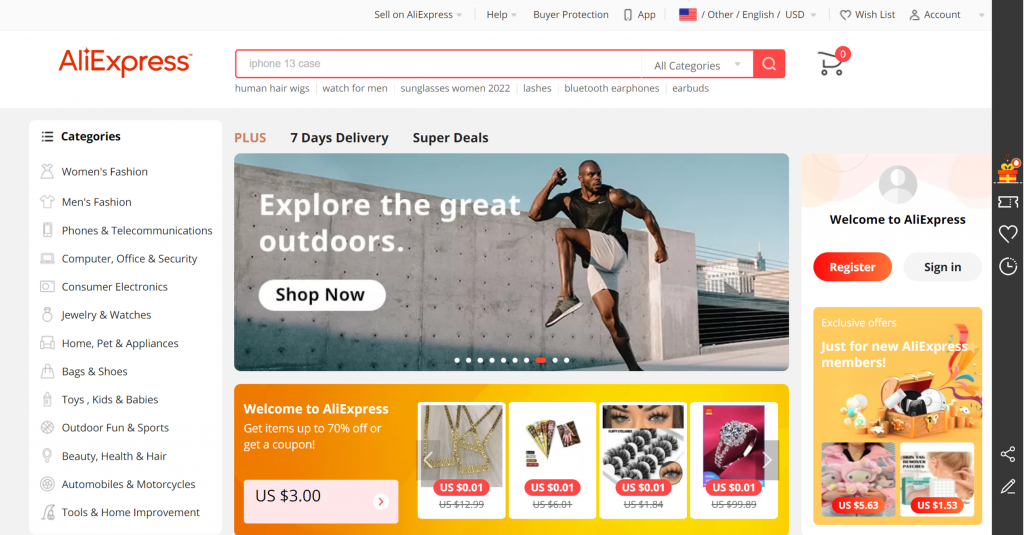
AliExpress is one of the most widely used platforms for dropshipping, boasting over 100 million products in categories like fashion, electronics, and home goods. Suppliers have cheaper items, and most do not have minimum order requirements, which is good for beginners.
One challenge with AliExpress is its shipping time, but with options like ePacket (7-20 days), you can improve delivery times for certain countries, particularly the U.S.
#2 SaleHoo
Key stats:
- Supplier reliability: 100% verified, with customer reviews and ratings
- Membership cost: $67/year or $127 for lifetime access
- Average delivery time: Varies depending on the supplier but includes U.S.-based options for faster shipping
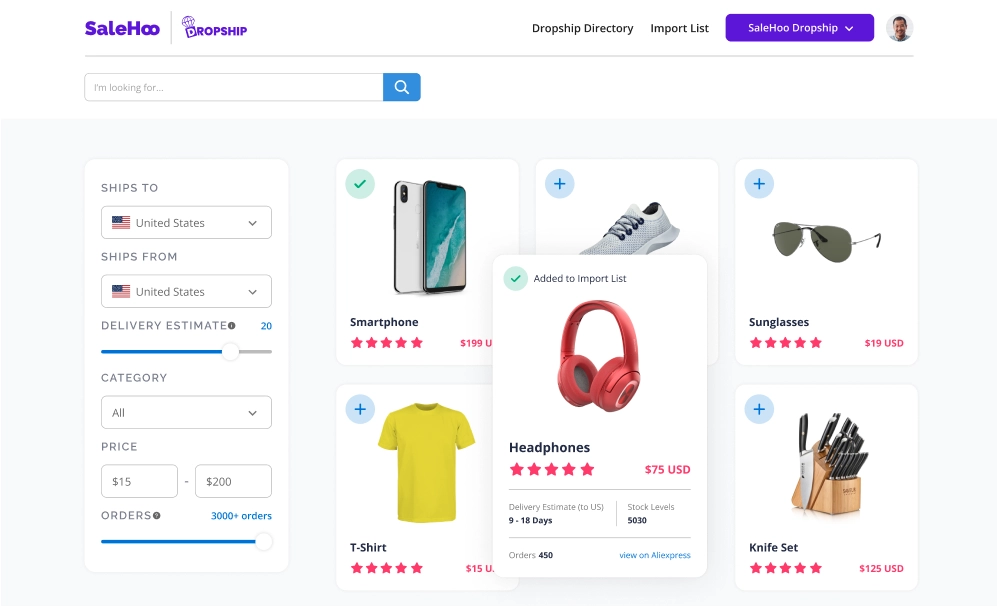
SaleHoo offers a paid directory that consists of over 8000 pre-screened suppliers. These suppliers cater products across a variety of categories: what makes them unique is that SaleHoo focuses on genuine and legit suppliers, eliminating the risks involved in partnering with untested partners.
And for those who are new to dropshipping, SaleHoo also offers various educational materials like step-by-step guides and even market research tools to help you succeed.
#3 Oberlo
Key stats:
- Integration: Works exclusively with Shopify, automating product imports and order fulfillment
- Monthly users: 6,500 new entrepreneurs join Oberlo each month
- Popular niches: Fashion, accessories, and home goods
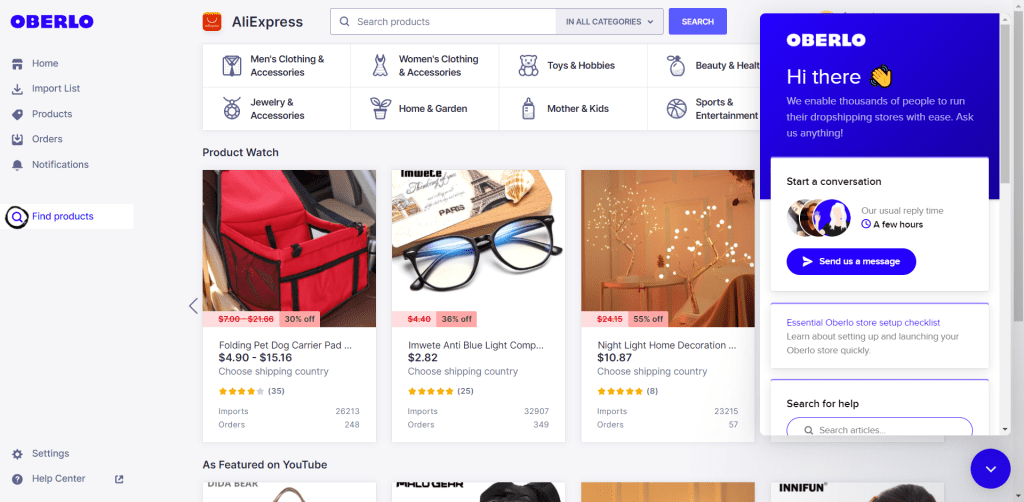
Designed and owned by Shopify, Oberlo is the dropshipping solution that allows you to import items sold into your store. You can import the products directly from Oberlo into your Shopify store. It has more than 2.5 million entrepreneurs with the platform, making it the most trusted option for scaling your e-commerce ventures.
Keeping track of inventory stock and shipping goods through Oberlo’s automated features saves one much time and reduces the chances of errors as they would be perfect for busy entrepreneurs.
#4 Spocket
Key stats:
- Average shipping time: 2-7 days for U.S. and EU-based products
- Supplier network: Thousands of suppliers offering over 80,000 products
- Subscription plans: Starting at $24.99/month for basic access
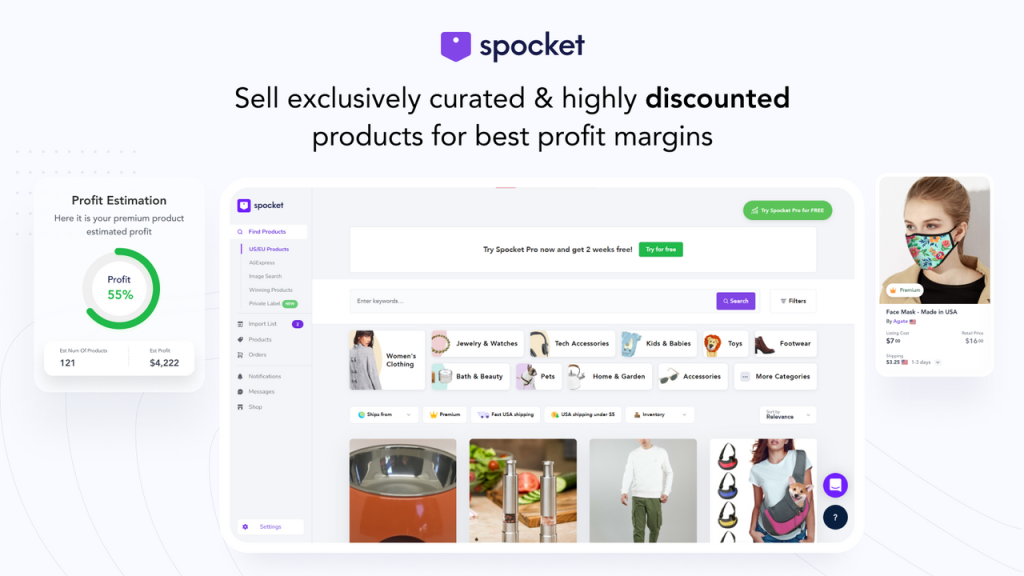
For dropshippers who intend to concentrate on premium quality and seamless shipping, Spocket is the best option. With 60% of suppliers coming from the U.S. and Europe, Spocket makes it easier for the user to access items within a short period.
It even brings branded invoices, which means that you can personalize your shipment. This is excellent for customer faith-building as well as for brand loyalty.
#5 Doba
Key stats:
- Subscription fee: Starts at $24.99/month for basic access
- Global suppliers: Includes both U.S. and international partners
- Popular categories: Electronics, home goods, and apparel
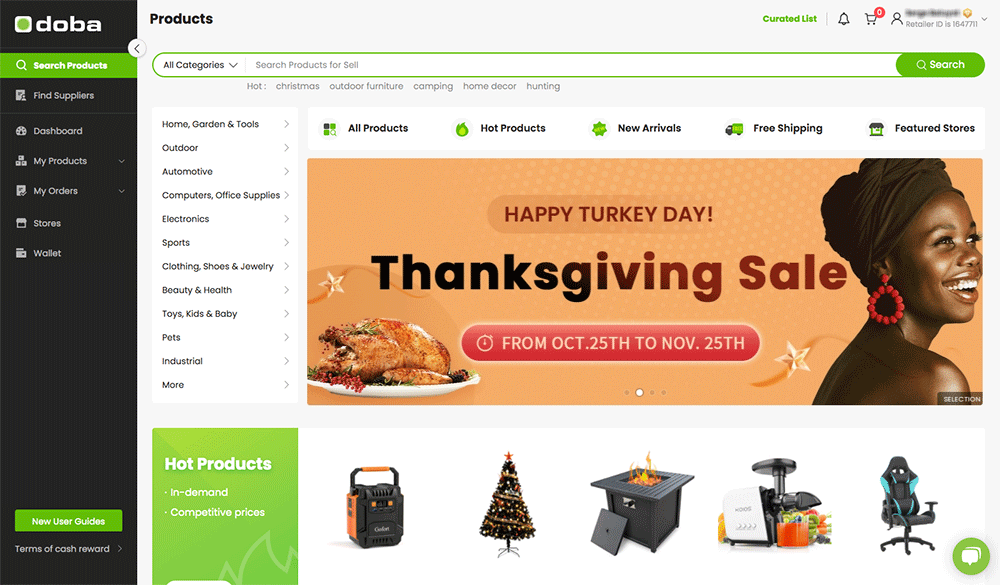
Doba organizes more than 2 million products from a variety of suppliers into one platform for supply chain inventory and order management. Its interface allows tracking inventory and orders from multiple suppliers in one place.
It’s especially useful for established businesses that handle large amounts of inventory because it provides more advanced tools for product sourcing and synchronizing inventories.
>>> Read more: 10 Best Platforms for Dropshipping to Maximize Profits This Year
Tips for Contacting and Negotiating with Dropshipping Suppliers
Building strong relationships with dropshipping suppliers is essential for long-term success. I’ll admit, at first, reaching out to suppliers can feel intimidating, but trust me, once you get the hang of it, it becomes an essential part of growing your business. Here’s how I’ve navigated this process, and hopefully, you’ll find these tips helpful too.
Research the supplier
Before I ever reach out to a supplier, I always make sure to do my homework. I can’t stress this enough: research is critical! Here’s what I look for:
- Product quality: Ask for product samples to verify product standards.
- Shipping timelines: Confirm that the supplier is capable of delivering within your time frame.
- Minimum order quantity: Check that these are within your business model.
- Payment terms: Understand the payment methods and schedules they accept.
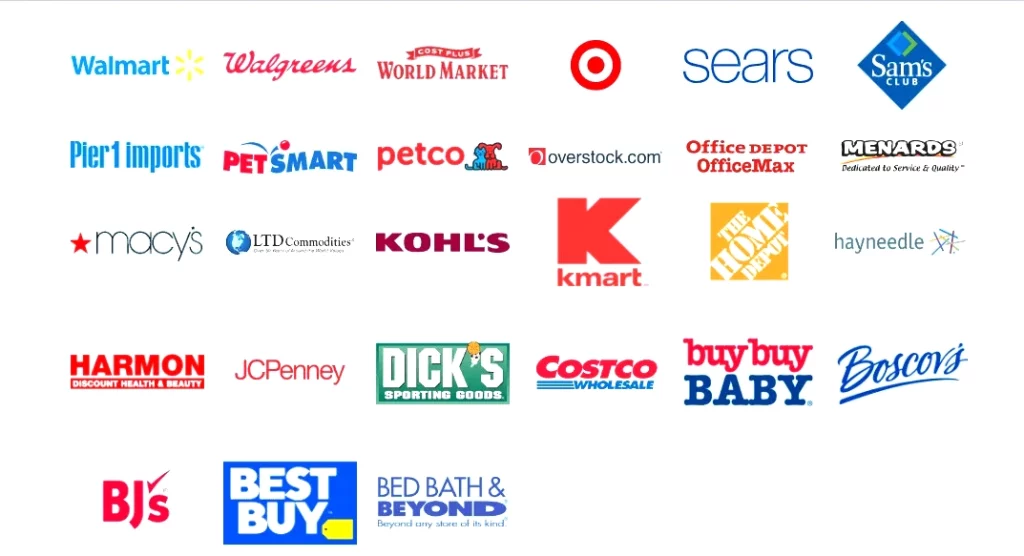
Approaching suppliers professionally
When contacting a supplier, first impressions matter. Present yourself as a serious business owner, even if you’re just starting out. Here’s how:
- Write a professional email: Introduce yourself, describe your business model, and then indicate your interest in their products.
- Be concise but detailed: Share relevant details about your niche, target market, and estimated order volume.
- Ask informed questions: Show that you know their products and services with some specific questions, such as bulk price or shipping policies.
Negotiation strategies
Negotiating is where you can really start to build a stronger relationship with suppliers. Here’s what I’ve learned over the years:
- Start with data: By showing the competitor prices or market trends, demonstrate that you have done your homework. A supplier will be more likely to offer discounts when they know that you’re somewhat knowledgeable.
- Leverage volume: If your expectations include future orders because you are going to grow your business, mention that you will be using higher volumes, especially to secure better rates from the suppliers.
- Be flexible: If the supplier cannot reduce the price, look for free shipping, faster or waiving fees instead.
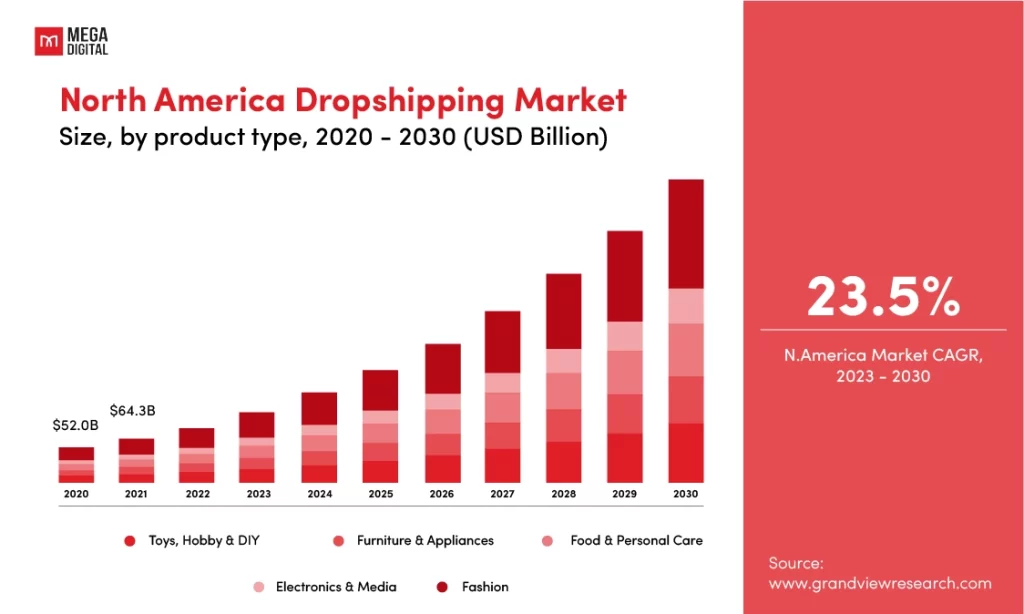
Establishing a solid relationship
For me, the goal is never just a transaction—it’s about building trust with my suppliers. Here’s how to cultivate this:
- Maintain open communication: Keep them updated on your needs and any changes in your business.
- Pay on time: Consistently meeting payment deadlines shows reliability.
- Express appreciation: Thank your supplier for their efforts and acknowledge good service to strengthen your partnership.
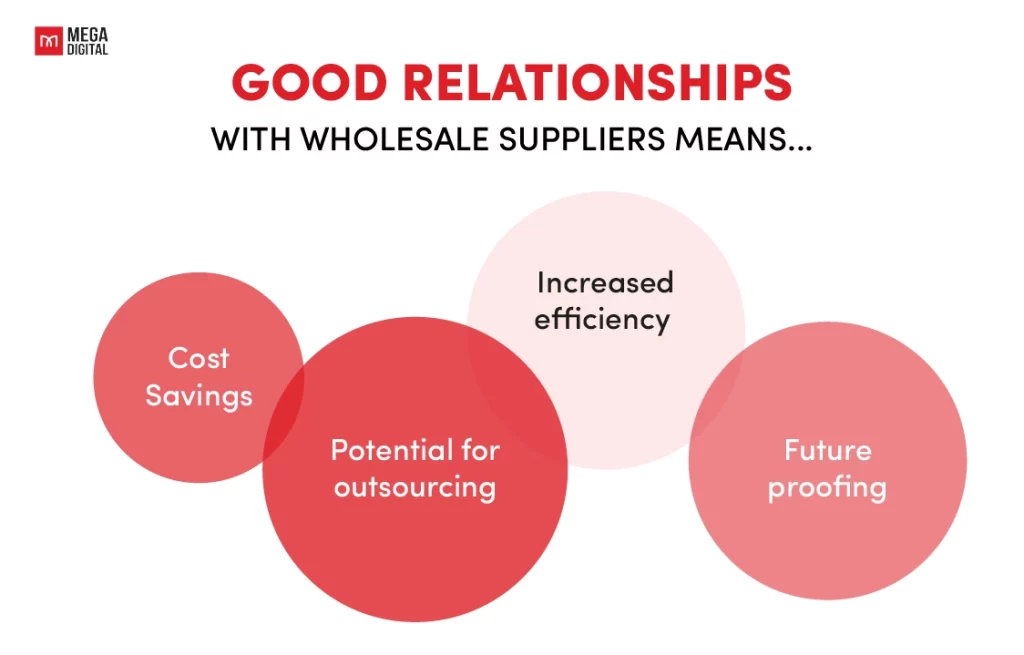
>>> Read more: AliExpress Shipping Time: How Long Does It Really Take?
Dealing with challenges
There are dropshipping challenges like delayed shipments, quality issues, or miscommunication. You should be prepared to face all these situations professionally:
- Stay calm and polite: Avoid being confrontational when addressing problems.
- Document everything: Keep a record of your communications, including emails and agreements, to refer back to if disputes arise.
- Collaborate on solutions: Work with the supplier to find a resolution, such as expedited shipping for delayed orders or refunds for defective products.
Conclusion
Above, I have some basic information to answer your question about how to find dropshipping suppliers. Ready to scale? Start implementing these steps and watch your dropshipping success unfold!







